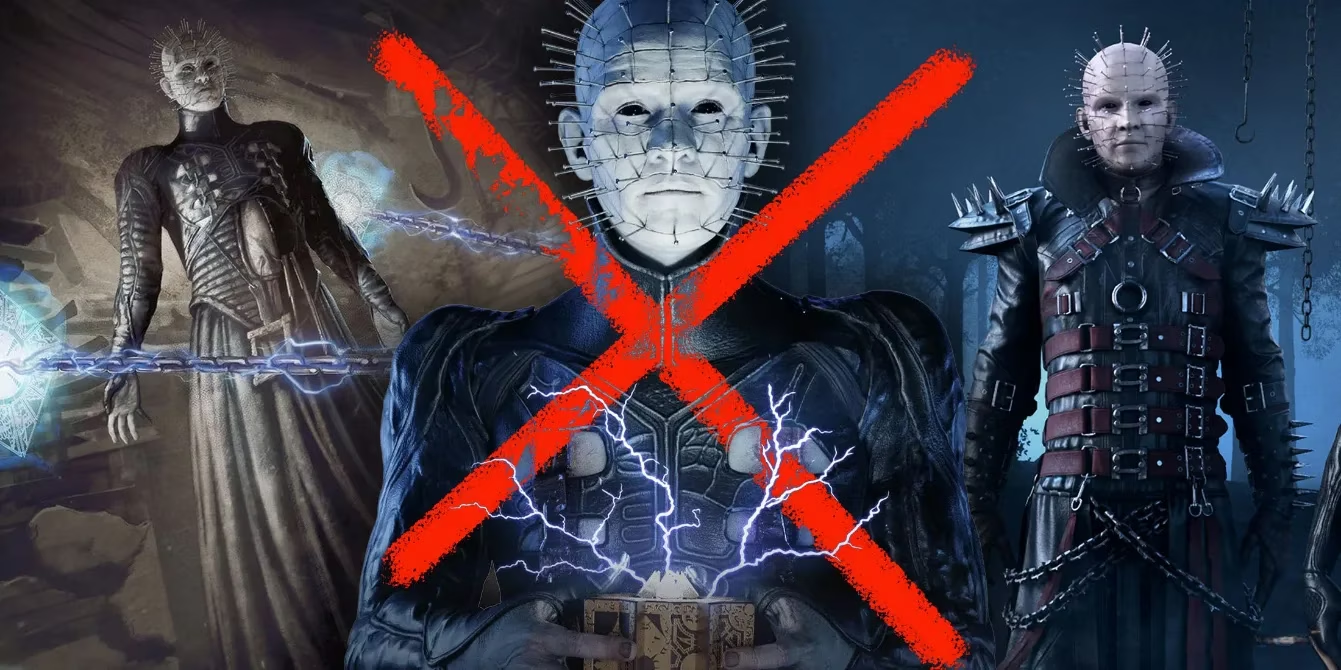The iconic Cenobite, Pinhead, is vanishing from the Fog just as swiftly as he arrived. Behaviour Interactive confirmed this week that the Hellraiser collaboration DLC will be removed from Dead by Daylight's in-game store on April 4, 2025, meaning newcomers can no longer purchase Clive Barker's nightmarish creation. Current owners keep their unlocked content, but this departure echoes past licensing woes like the Stranger Things chapter removal.  Why does this keep happening? It's not about Behaviour's handling of the game—pin it on the tangled web of franchise rights. Hellraiser's ownership shifted right after Pinhead debuted, and the new license holder simply isn't interested in continuing the deal. This feels like déjà vu, doesn't it? Fans are left wondering if their favorite killers are on borrowed time, all while Behaviour scrambles to maintain its massive library of licensed horrors. The precedent is set: nothing in the Fog is permanent anymore.
Why does this keep happening? It's not about Behaviour's handling of the game—pin it on the tangled web of franchise rights. Hellraiser's ownership shifted right after Pinhead debuted, and the new license holder simply isn't interested in continuing the deal. This feels like déjà vu, doesn't it? Fans are left wondering if their favorite killers are on borrowed time, all while Behaviour scrambles to maintain its massive library of licensed horrors. The precedent is set: nothing in the Fog is permanent anymore.
At its core, this removal stems from licensing chaos, not gameplay flaws. Hellraiser's rights have a messy history—after Pinhead joined Dead by Daylight in 2021, ownership changed hands again, leading to this abrupt exit. Compare that to the Stranger Things saga: Netflix pulled the license years ago, wiping out two survivors, the Demogorgon killer, and the Hawkins Lab map overnight. But here's the kicker: Stranger Things eventually returned, while Hellraiser's future looks grim. Why the difference? 🤔 Hellraiser launched with just Pinhead—no map, no survivor—and never gained the cult following of 'Demodoggo'. That lack of popularity might make a comeback unlikely. Behaviour always gives ample notice, so players have time to grab content before it's gone, but the emotional toll is real. Think about it: a game built on crossovers now faces the fragility of those deals.
The Stranger Things incident wasn't a fluke; Pinhead's exit proves it. Both cases highlight how Dead by Daylight's success hinges on licenses that can vanish overnight. Let's break down the key removals with a quick comparison:
| DLC Chapter | Characters Included | Map? | Popularity | Outcome |
|---|---|---|---|---|
| Stranger Things | 2 Survivors, 1 Killer (Demogorgon) | Yes 🏚️ | High 😍 | Returned after hiatus |
| Hellraiser | 1 Killer (Pinhead) | No ❌ | Medium 😐 | Uncertain future |
This isn't just about lost content—it's a warning bell for other licensed killers. Take Freddy Krueger from Nightmare on Elm Street or Michael Myers from Halloween. Freddy's rights are held by Wes Craven's estate, which famously disliked the 2010 remake version in the game. 😬 Result? Few cosmetics since 2016, hinting at potential strain. Michael Myers hasn't seen major updates either. Does this mean they're next? Not necessarily, but the pattern is undeniable. Behaviour has strong ties with some license holders, like SAW, which gets regular cosmetics for the Pig and Tapp. Yet, for others, the collaboration feels shaky. Community speculation is rife: forums buzz with theories that Freddy could be the next victim if rights issues flare up. After all, Pinhead's case shows that even iconic characters aren't safe.
For the average player, life in the Fog goes on. Behaviour ensures smooth transitions—owners keep playing as Pinhead, and no purchased content vanishes. But the bigger picture? It signals instability in an industry where crossovers drive engagement. Players might start questioning: 'Should I invest in licensed DLC if it could disappear?' 🤷♂️ The answer isn't clear-cut. Dead by Daylight thrives on its horror roster, but this incident exposes a vulnerability that could deter future collaborations. On the bright side, Behaviour's transparency helps—announcements come early, giving fans a chance to act. Yet, the emotional resonance is undeniable: losing Pinhead feels like saying goodbye to an old friend in a game that's all about shared scares.
In the end, Pinhead's swift departure mirrors his arrival—here one moment, gone the next. As the Fog shifts, this event underscores a harsh reality: licensed content is fleeting, and the future may hold more exits. But for now, players adapt, proving that even in uncertainty, the hunt continues.
Leave a Comment